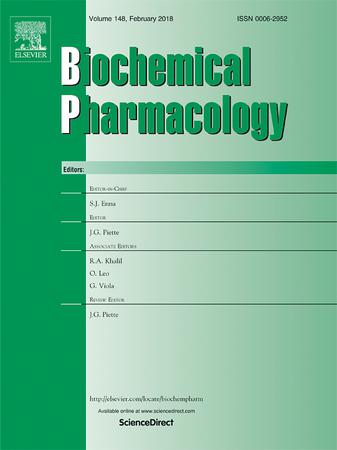CD8+ T cell-based immunotherapy: Promising frontier in human diseases
IF 5.3
2区 医学
Q1 PHARMACOLOGY & PHARMACY
引用次数: 0
Abstract
The abundant cell components of the adaptive immune system called T lymphocytes (T cells) play important roles in mediating immune responses to eliminate the invaders and create the memory of the germs to form a new immunity for the next encounter. Among them, cytotoxic T cells expressing cell-surface CD8 are the most critical effector cells that directly eradicate the target infected cells by recognizing antigens presented by major histocompatibility complex class I molecules to protect our body from pathological threats. In the continuous evolution of immunotherapy, various CD8+ T cell-based therapeutic strategies have been developed based on the role and molecular concept of CD8+ T cells. The emergence of such remarkable therapies provides promising hope for multiple human disease treatments such as autoimmunity, infectious disease, cancer, and other non-infectious diseases. In this review, we aim to discuss the current knowledge on the utilization of CD8+ T cell-based immunotherapy for the treatment of various diseases, the molecular basis involved, and its limitations. Additionally, we summarize the recent advances in the use of CD8+ T cell-based immunotherapy and provide a comprehensive overview of CD8+ T cells, including their structure, underlying mechanism of function, and markers associated with CD8+ T cell exhaustion. Building upon these foundations, we delineate the advancement of CD8+ T cell-based immunotherapies with fundamental operating principles followed by research studies, and challenges, as well as illustrate human diseases involved in this development.

基于 CD8+ T 细胞的免疫疗法:在人类疾病领域大有可为的前沿。
本文章由计算机程序翻译,如有差异,请以英文原文为准。
求助全文
约1分钟内获得全文
求助全文
来源期刊

Biochemical pharmacology
医学-药学
CiteScore
10.30
自引率
1.70%
发文量
420
审稿时长
17 days
期刊介绍:
Biochemical Pharmacology publishes original research findings, Commentaries and review articles related to the elucidation of cellular and tissue function(s) at the biochemical and molecular levels, the modification of cellular phenotype(s) by genetic, transcriptional/translational or drug/compound-induced modifications, as well as the pharmacodynamics and pharmacokinetics of xenobiotics and drugs, the latter including both small molecules and biologics.
The journal''s target audience includes scientists engaged in the identification and study of the mechanisms of action of xenobiotics, biologics and drugs and in the drug discovery and development process.
All areas of cellular biology and cellular, tissue/organ and whole animal pharmacology fall within the scope of the journal. Drug classes covered include anti-infectives, anti-inflammatory agents, chemotherapeutics, cardiovascular, endocrinological, immunological, metabolic, neurological and psychiatric drugs, as well as research on drug metabolism and kinetics. While medicinal chemistry is a topic of complimentary interest, manuscripts in this area must contain sufficient biological data to characterize pharmacologically the compounds reported. Submissions describing work focused predominately on chemical synthesis and molecular modeling will not be considered for review.
While particular emphasis is placed on reporting the results of molecular and biochemical studies, research involving the use of tissue and animal models of human pathophysiology and toxicology is of interest to the extent that it helps define drug mechanisms of action, safety and efficacy.
 求助内容:
求助内容: 应助结果提醒方式:
应助结果提醒方式:


